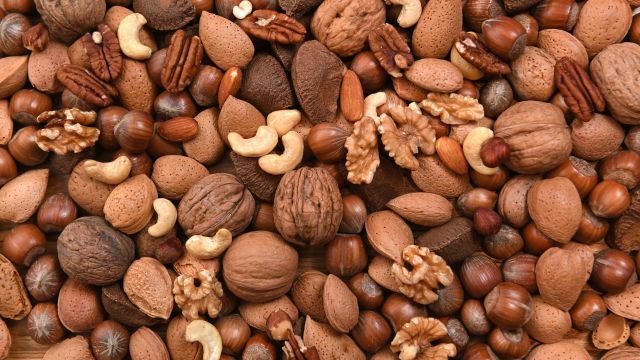Experts found that diets high in protein – particularly plant protein – could lower the risk of early death, while swapping meat for plant protein may increase longevity.
Rich sources of plant protein include beans, lentils, chickpeas, edamame beans, nuts and quinoa.
Tofu, or soybean curd, is also a good source of protein, while some vegetables including broccoli, peas and spinach contribute to protein intake.
Higher intake of total protein was associated with a lower risk of all cause mortality, and intake of plant protein was associated with a lower risk of all cause and cardiovascular disease mortality
For the new study, published in the British Medical Journal (BMJ), experts reviewed 32 existing studies on the topic.
During a follow-up period of between 3.5 and 32 years, some 113,039 deaths occurred, including 16,429 from cardiovascular disease and 22,303 from cancer, among 715,128 people.
Researchers found that intake of total protein was associated with a 6% lower risk of death from any cause.
But a diet containing plant protein was “significantly associated with a lower risk of all cause mortality”, the researchers said, with an 8% reduction in death from any cause when people with the highest intake of plant protein were compared with those with the lowest.
People with the highest intake of plant proteins also had a 12% reduced risk of death from cardiovascular disease when compared with those with the lowest.
The study found that an additional 3% of energy intake from plant proteins a day was associated with a 5% lower risk of death from all causes.
Replacement of foods high in animal protein with plant protein sources could be associated with longevity
The study concluded: “Higher intake of total protein was associated with a lower risk of all cause mortality, and intake of plant protein was associated with a lower risk of all cause and cardiovascular disease mortality.
“Replacement of foods high in animal protein with plant protein sources could be associated with longevity.”
The experts were from Harvard University in the US and the Tehran University of Medical Sciences in Iran.
They said possible reasons for why plant proteins are important include their positive effect on blood pressure, cholesterol and blood sugar levels, which might help to lower the risk of conditions such as heart disease and Type 2 diabetes.
The experts called for more research but said their findings “strongly support the existing dietary recommendations to increase consumption of plant proteins in the general population”.







